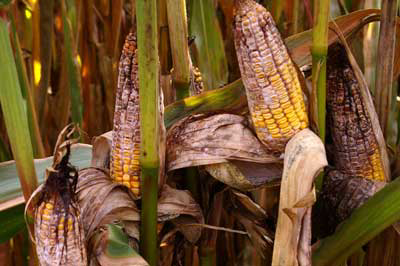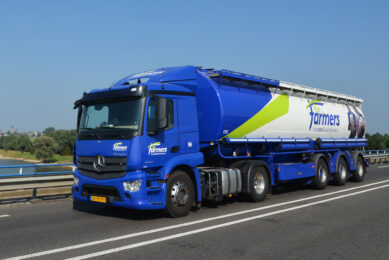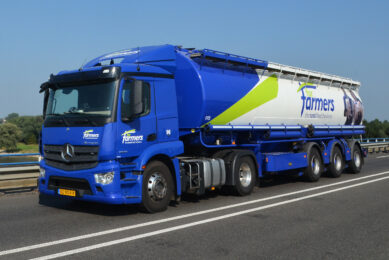Successful safe feed pilot scheme to be implemented

Having completed a successful pilot scheme to improve feed and food safety, the Food Fortress programme is now being implemented by two major sectors of the agri-food industry and will give Northern Ireland produce a unique advantage in the global food market.
Commenting on this development, Agriculture Minister, Michelle O’Neill said: “It is pleasing to note how the Northern Ireland Grain Trade Association, local companies and our Institute of Global Food Security at Queen’s University have driven forward the Food Fortress Feed Assurance Project to help protect our food and feed supply chain.
“This will help ensure the production of safe animal feed, underpinning our local agri-food sector; and it will be an invaluable tool in developing further export markets to support the overall aims and objectives of the Agri-Food Strategy Board.”
The scheme has been extensively tested and the outstanding results returned from the six month pilot programme has brought an immediate response from the industry with the broiler sector becoming fully engaged in the scheme and the inclusion of the Food Fortress in the newly published standard for the Farm Quality Assured Beef and Lamb schemes.
Ian Stevenson, chief executive of the Livestock and Meat Commission, speaking at a meeting of feed compounders from north and south of the border in Armagh this week, said: “The scheme has proved highly successful and cost effective in delivering a much higher level of surveillance of the feeds supplied to local farms and this has prompted us to include it in our Beef and Lamb Quality Assurance Schemes.”
Food Fortress was developed in partnership with the Global Food Security Unit at Queens University led by Professor Chris Elliott who commented: “This scheme puts the animal feed trade in Ireland ahead in the world. I congratulate the trade on having the foresight to utilise the scientific knowledge and modern technology to carry out this detailed sampling, and monitoring plan.” He added “As the first link in the food chain you are setting an excellent example. This must be followed throughout the food chain, with the ultimate aim of testing and monitoring everything that is imported into or exported from Ireland.”
The Food Fortress programme was set up in response to the recommendations of the Industry Feed and Food Assurance Group following the serious dioxin contamination in 2008. This group represents all aspects of the agrifood industry and aims to reduce the commercial and food safety risks of contamination.
Robin Irvine, Chief Executive of the NI Grain Trade Association (NIGTA) commented: “The feed trade has been working closely with Queens to develop a feed assurance system which will help ensure the safety of all feed materials coming into the island of Ireland and will continue to monitor them through the processing and transporting of the animal feed to the farm gate. A detailed analysis of all sources of contamination and monitoring systems has been developed in conjunction with a comprehensive sampling and testing regime.”
Grain Trade President, Alan Johnston , pointed out that this scheme was part of the feed trade’s efforts to support the “Going For Growth” and “Harvest 2020” strategies which have been developed to assist the island of Ireland meet certain growth targets in the agri food industry by the year 2020. He emphasised that similar efforts are required throughout the food chain and support must be forthcoming from government, the regulators and financial institutions. He added:
“It is important to remember that the agrifood industry is a major export earner, the leading private sector employer and vital to the economy of Ireland – both north and south.”












